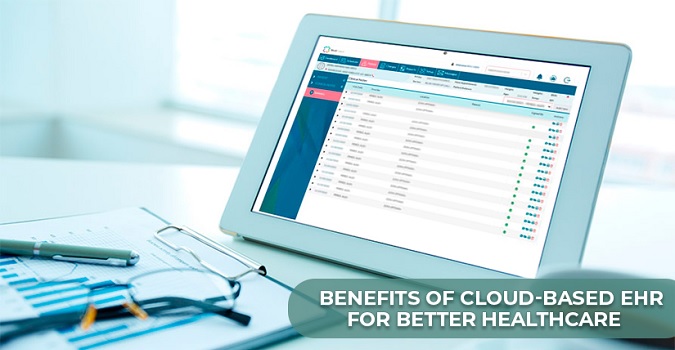In today's fast-paced environment, the Information Technology (IT) sector stands out as one of the…

Cloud-Based EHRs: How To Improve Patient Care
How To Improve Patient Outcomes with Cloud-based EHRs
Electronic Health Records (EHRs) have been transforming the healthcare industry by providing a centralized platform for managing patient data. Cloud-based EHRs are EHRs that are hosted and managed by a third-party service provider, rather than being stored on local servers. Managed cloud solutions offer a reliable, scalable, and secure platform to store EHRs, enabling healthcare providers to deliver better patient care. In this blog, we will explore how cloud-based EHRs can improve patient care in Australia.
Improved Accessibility to Patient Data
Cloud-based EHRs offer the healthcare industry the ability to access patient data anytime, anywhere. This is particularly important for the healthcare sector in rural and remote areas of Australia, which may not have access to the same level of healthcare infrastructure as their urban counterparts. With cloud-based EHRs, healthcare companies can access patient data on any device with an internet connection, making it easier for them to provide care to patients, regardless of their location.
Enhanced Collaboration Between Healthcare Providers
Cloud-based EHRs facilitate collaboration between healthcare organisations. With a cloud-based EHR, healthcare providers can share patient data in real time with other providers, improving the coordination of care. This is especially beneficial for patients with complex medical conditions who may require care from multiple providers. With a cloud-based EHR, all healthcare practitioners can access the same patient data, reducing the likelihood of medical errors and improving patient outcomes.
Improved Data Security
Data security is a major concern in healthcare, particularly in Australia where data privacy laws are strict. With cloud-based EHRs, healthcare providers can benefit from the security protocols and infrastructure provided by their service providers. This includes measures such as regular security updates, data encryption, and strict access controls. By using managed cloud solutions, healthcare professionals can ensure that their EHRs are secure and compliant with local regulations, minimizing the risk of data breaches and fines.
Scalability and Flexibility
Cloud-based EHRs offer healthcare providers the ability to scale up or down depending on their needs. With managed cloud solutions, the healthcare sector can adjust its storage capacity and computing power as needed, ensuring that they only pay for what they use. This is particularly beneficial for Australian healthcare providers who may not have the resources to maintain their own servers. With cloud-based EHRs, they can benefit from the same level of technology and infrastructure as larger providers, without the associated costs.
Improved Efficiency
Cloud-based EHRs can improve efficiency, allowing them to spend more time with patients. By using a cloud-based EHR, healthcare providers can eliminate the need for manual data entry, reducing the risk of errors and freeing up time to focus on patient care. Additionally, the healthcare industry can benefit from advanced analytics and reporting tools, enabling them to identify trends in patient data and make informed decisions about patient care.
Reduced Costs
Cloud-based EHRs can help healthcare providers to reduce costs associated with maintaining their own IT infrastructure. With managed cloud solutions, the healthcare sector can benefit from economies of scale, with service providers able to provide infrastructure and support at a lower cost than if the provider were to maintain their own servers. Moreover, with a cloud-based EHR, healthcare organisations can reduce the costs associated with hardware maintenance and upgrades, as well as the need for in-house IT staff.
Conclusions
In conclusion, cloud-based EHRs offer a range of benefits to healthcare providers in Australia, including improved access to patient data, enhanced collaboration between healthcare providers, improved data security, scalability and flexibility, improved efficiency, and reduced costs. By using managed cloud solutions, the healthcare industry can focus on delivering high-quality patient care, without the need to maintain its own IT infrastructure.
Also Read:



